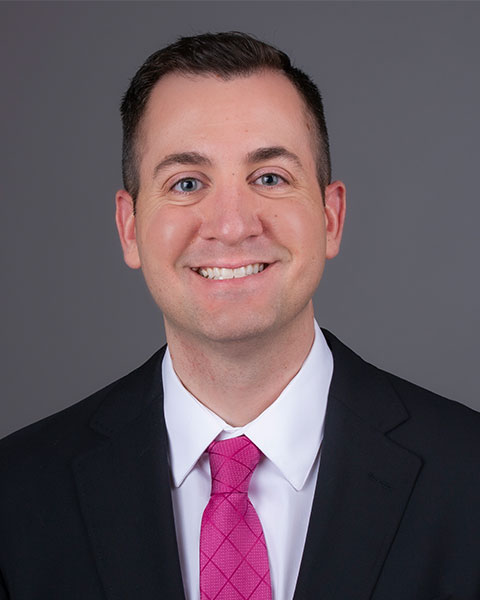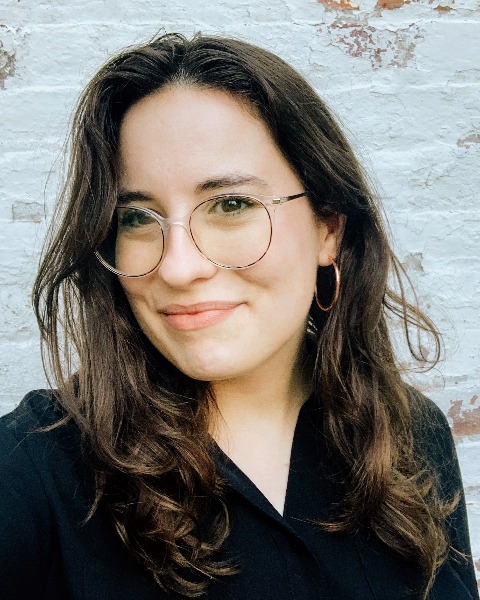LGBTQ+
Symposium 63 - From Policy to Pavement: LGBTQ+ people’s navigation of social and geographic environments
Level of Familiarity: Basic to moderate
Recommended Readings: Hatzenbuehler, M. L. (2017). Advancing research on structural stigma and sexual orientation disparities in mental health among youth. Journal of Clinical Child & Adolescent Psychology, 46(3), 463-475.,
Dyar, C., Feinstein, B. A., Sarno, E. L., Pirog, S., Newcomb, M. E., & Whitton, S. W. (2021). Prospective associations between bi+ minority stressors and internalizing symptoms: The mediating roles of general and group-specific processes. Journal of Consulting and Clinical Psychology, 89(10), 845.
, (2019) Stigma and suicide risk among the LGBTQ population: Are anxiety and depression to blame and can connectedness to the LGBTQ community help?, Journal of Gay & Lesbian Mental Health, 23:2, 205-220, ,-
PL
Paddy Loftus, B.A. (he/him/his)
George Washington University
Arlington, Virginia, United States -
SJ
Saskia Jorgensen, B.A. (she/her/hers)
PhD Student
The George Washington University
Washington, District of Columbia, United States -

Brian Feinstein, Ph.D. (he/him/his)
Associate Professor
Rosalind Franklin University
N Chicago, Illinois, United States -
PL
Paddy Loftus, B.A. (he/him/his)
George Washington University
Arlington, Virginia, United States -
SJ
Saskia Jorgensen, B.A. (she/her/hers)
PhD Student
The George Washington University
Washington, District of Columbia, United States -
JF
Jessie Ford, Ph.D. (she/her/hers)
Postdoctoral Fellow
Columbia University
Brooklyn, New York, United States -

Allyson Blackburn, M.S. (She and they)
Doctoral Student
University of Illinois at Urbana-Champaign
Champaign, Illinois, United States
Chair(s)
Discussant(s)
Presenter(s)
Individuals who hold diverse sexual and gender identities (LGBTQ+ people) face persistent discrimination across environmental contexts (e.g., school, home; Kosciw et al., 2022). Discrimination arises from many sources, whether via one’s immediate social world, institutions they are entrenched in, or sociopolitical structures. In this symposium, we take a socio-ecological approach (Bronfenbrenner, 1977) to examine understudied, multi-level processes linking LGBTQ+ connection, anti-LGBTQ+ victimization, identity-specific socioemotional functioning, and mental health.
In the same way that risk is multi-systemic, protective factors exist on several levels, such as relationship satisfaction (Gilmour et al., 2022), connection to one’s local LGBTQ+ community (Frost & Meyer, 2012), and LGBTQ+ legal protections (Pachankis & Bränström, 2018]). The LGBTQ+ community is built on a rich history of support, joy, and creativity. LGBTQ+ individuals who are connected to the broader community through interpersonal relationships, pride, advocacy, and engagement in LGBTQ+ activities have better outcomes (Szymanski et al., 2023).
Using innovative methods, we explore how LGBTQ+ people navigate social and geographic environments. Our first presenter will use conjoint analysis to distinguish contexts (e.g., location, time of day) that differentially evoke LGBTQ+ people’s hypervigilance. Our second presenter will leverage qualitative data to distinguish structural stigma experiences (e.g., erasure) among bisexual and gay men. These works consider the measurement of anti-LGBTQ+ stigma and how multi-level stigmas preclude some from social connection and life experience.
Affirming interactions with LGBTQ+ people and spaces can also be protective. Our third presenter will use social network analysis to link LGB people’s social bonding patterns and their reports of social support, and our forth presenter will consider the protective roles of social support and community connection in the relationship between discrimination and internalizing symptoms in bi+ people. Together, our symposium illuminates experiential differences between LGBTQ+ subpopulations (bi+ people, women, gender diverse people) and the roles of intersectionality and belongingness in feelings of safety and connectedness.
With spikes in anti-LGBTQ+ legislation (Agénor et al., 2022) and prejudice, there is a need for systemic change (anti-discrimination policies, enrichment of LGBTQ+ spaces). Today, LGBTQ+ individuals navigate indeterminately risky environments and tolerate identity-based victimization. Consistent with this year’s conference theme, we consider how systems-level change efforts can be made in-tandem with individual treatment approaches. Providers working with LGBTQ+ people can focus on building skills to navigate risky environments and facilitate social and community support. By meeting LGBTQ+ people where they are, psychologists can assist LGBTQ+ people in cultivating resilience and resistance, thereby improving mental health outcomes.
Learning Objectives:
- Characterize the salience/impact of multi-level stigma (individual, community, structural) on LGBTQ+ people’s socio-emotional functioning
- Spotlight LGBTQ+ people’s strengths via protective and promotive factors, including community connectedness and social support networks
- Map diverse LGBTQ+ subpopulations’ supportive and discriminatory social experiences, specifically how they differ by identity group
- Apply innovative methods to understudied LGBTQ+ phenomena including conjoint analysis, social network analysis, and qualitative interviews
- Promote collaboration across community, policy, and practice to address mental health needs of LGBTQ+ people and advocate for systemic change
Presentations:
-
8:30 AM - 10:00 AM EST(SYM 63) Local Hypervigilance Experiences Among LGBTQ+ People: Geographic Considerations
Speaker: Paddy Loftus, B.A. (he/him/his) – George Washington University
Co-author: Saskia L. Jorgensen, B.A. (she/her/hers) – The George Washington University
Co-author: Fallon R. Goodman, PhD (she/her/hers) – The George Washington University
-
8:30 AM - 10:00 AM EST(SYM 63) Bi+ People's Experiences of Discrimination and Mental Health: The Roles of Social Support and Community Connectedness
Speaker: Saskia L. Jorgensen, B.A. (she/her/hers) – The George Washington University
Co-author: Paddy Loftus, B.A. (he/him/his) – George Washington University
Co-author: Fallon R. Goodman, PhD (she/her/hers) – The George Washington University
Co-author: Emily Bettin, B.A. – Rosalind Franklin University of Medicine and Science
Co-author: Brian Feinstein, Ph.D. (he/him/his) – Rosalind Franklin University
-
8:30 AM - 10:00 AM EST(SYM 63) “no Man's Land”: Exploring Accounts of Structural Stigma Among Bisexual Men Compared to Gay Men
Speaker: Jessie Ford, Ph.D. (she/her/hers) – Columbia University
-
8:30 AM - 10:00 AM EST(SYM 63) Social Support Among LGB and Heterosexual Undergraduate Students:
an Ego-centric Social Network StudySpeaker: Allyson M. Blackburn, M.S. (She and they) – University of Illinois at Urbana-Champaign
Co-author: Nathan Todd, PhD (he/him/his) – University of Illinois at Urbana-Champaign
Co-author: Nicole E. Allen, PhD (she/her/hers) – Vanderbilt University

.png)
